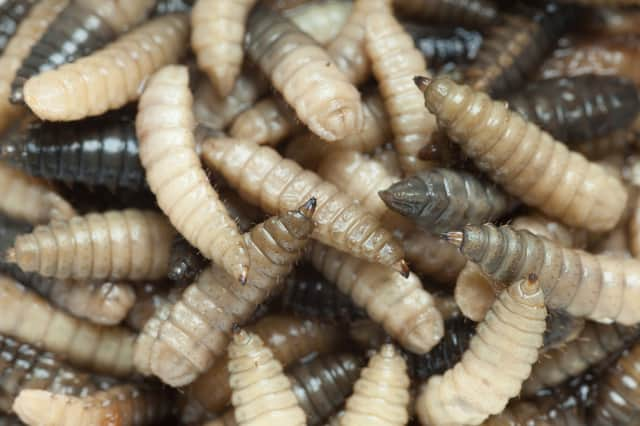Maggot therapy: increase in use of live larvae to treat wounds on NHS patients amid antibiotic resistance fears
This article contains affiliate links. We may earn a small commission on items purchased through this article, but that does not affect our editorial judgement.


England’s NHS used live maggots to clean wounds hundreds of times last year amid ongoing fears of antibiotic resistance among patients.
The treatment – which involves putting sterilised live larvae from greenbottle blowflies on wounds to eat dead tissue and clean the wound – is becoming increasingly common in England as antibiotic resistance makes illnesses more difficult to treat, reports The Telegraph.
Advertisement
Hide AdAdvertisement
Hide AdNHS Digital data seen by NationalWorld shows the therapy has been used on almost 15,000 hospital patients in the last 14 years, with the number of people having the treatment surging 94% between 2007/08 and 2019/20.
Scientists have warned of a “hidden pandemic” in antibiotic resistance as new data published by the UK Health Security Agency (UKHSA) last week (17 November) to mark World Antibiotics Awareness Week revealed that one in five people with a bloodstream infection in 2020 had an antibiotic-resistant infection.
Maggot therapy used hundreds of times
Maggot therapy is still not widely available on the NHS and currently only in use at certain Clinical Commissioning Groups. It has been used on 14,881 people between 2007/08 and 2020/21.
Loading....
The treatment peaked in 2018/19 when it was used 1,305 times but it dropped to 776 in 2020/21, likely due to the coronavirus pandemic having an impact on healthcare and treatments.
‘Global catastrophe of antimicrobial resistance’
Advertisement
Hide AdAdvertisement
Hide AdBioMonde is a multinational wound care company specialising in the manufacture and distribution of larval debridement therapy products.
The company is based in Bridgend, South Wales, and sells around 25,000 biobags ( which contain the maggots) annually across Europe, 9,000 of which go to the NHS.
Speaking to The Telegraph, Yamni Nigam, a professor of healthcare science at Swansea University, said: “Maggots are viewed as an agent of decay, when in fact they’re brilliant little creatures… and work incredibly well in wounds with resistant infections.
“We’re on the cusp of this global catastrophe of antimicrobial resistance and larval therapy is sometimes considered a backup plan or last resort to tackle resistance – but actually it is part of the solution.”
A hidden pandemic
Advertisement
Hide AdAdvertisement
Hide AdThe UKHSA report found antibiotic-resistant bloodstream infections fell in 2020 (from 65,583 in 2019, to 55,384) for the first time since 2016 but still remain at a higher level than six years ago.
It reported the decline was largely a result of a reduction in recorded bloodstream infections because of less social mixing, enhanced hand hygiene and changes to healthcare access and delivery caused by the pandemic.
Dr Susan Hopkins, chief medical advisor at UKHSA, said taking antibiotics when you do not need them puts lives at risk.
“Antimicrobial resistance (AMR) has been described as a hidden pandemic and it’s important that we do not come out of Covid-19 and enter into another crisis,” she said.
Advertisement
Hide AdAdvertisement
Hide Ad“Serious antibiotic-resistant infections will rise once again if we don’t act responsibly and that can be as simple as regular and thorough handwashing.
“As we head into winter, with increasing amounts of respiratory infections in circulation, it’s important to remember that antibiotics are not needed for many cold-like symptoms.
“Stay at home if you feel unwell. Taking antibiotics when you don’t need them only puts you and your loved ones at more risk in the future so please listen to your GP, nurse, dentist or pharmacist’s advice.”
A message from the editor:
Thank you for reading. NationalWorld is a new national news brand, produced by a team of journalists, editors, video producers and designers who live and work across the UK. Find out more about who’s who in the team, and our editorial values. We want to start a community among our readers, so please follow us on Facebook, Twitter and Instagram, and keep the conversation going. You can also sign up to our newsletters and get a curated selection of our best reads to your inbox every day.
Comment Guidelines
National World encourages reader discussion on our stories. User feedback, insights and back-and-forth exchanges add a rich layer of context to reporting. Please review our Community Guidelines before commenting.
